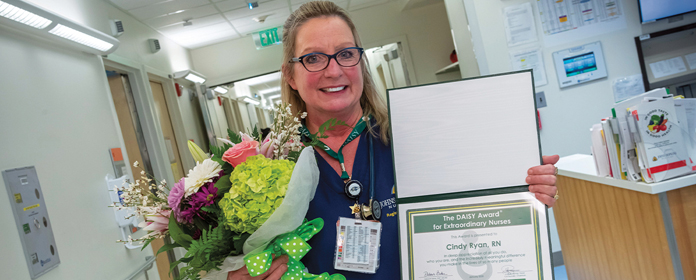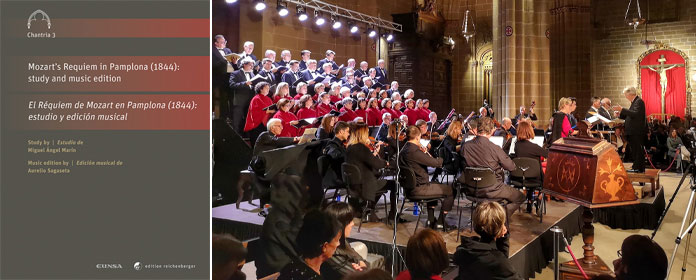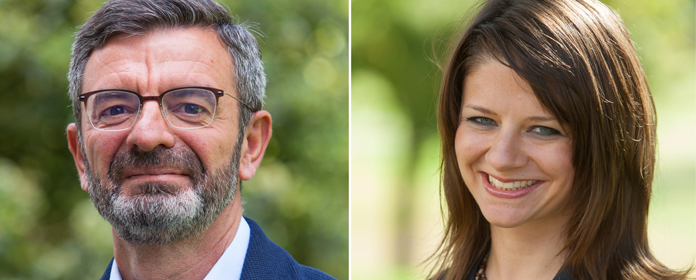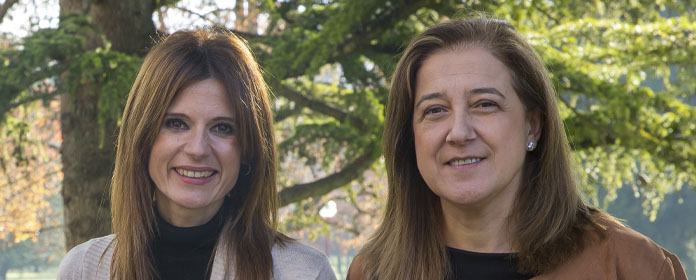A Canadian expert presents guide to facilitate decision making for caregivers of the terminally ill.
Carole Robinson stated at the University of Navarra that "if a terminal patient wants to spend the end of his life at home, the health system expects his relatives to take care of him but does not offer knowledge and support for this".
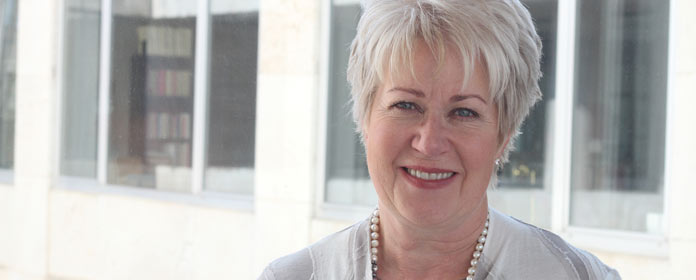
PHOTO: Carlota Cortés
A Canadian expert has developed a websiteguide to guide family caregivers of terminally ill people. She is Carole Robinson, a researcher at the University of British Columbia (Canada), who spoke about it at the Institute for Culture and Society (ICS), the research center in Humanities and social sciences of the University of Navarra.
"If a terminally ill person wants to spend the end of his or her life at home, the healthcare system expects family members to care for him or her but does not offer knowledge or support for this," he notes. The guide seeks to somehow alleviate this lack of training that is common among caregivers. "They don't know what the future will be like or have the skills to care for a patient, but they are committed to doing so," she assures.
According to this professor, care becomes progressively more complicated and family members are often unaware of the decisions and care they will have to make and carry out. position What may start with accompanying the patient to the doctor's office may end up as taking care of the patient's hygiene or injecting medications intravenously. "These are skills that medical professionals seem to take for granted," he reiterates.
Step-by-step careThe guide is divided into four points with questions for caregivers. The first step is to reflect on the present status , how the disease is being managed. Then, financial aid to anticipate the possible evolution of events and what things both the patient and the caregiver consider important. Thirdly, the resources available in the environment and access to them are investigated. Finally, a decision is made as to what is best given the circumstances at the time.
To perform these steps, the expert recommends viewing the guide together with an experienced person, either a volunteer or a professional. If the status changes, the steps can be re-examined to reach a new conclusion.
Robinson points out that, among other issues, it introduces future situations that caregivers will encounter, something he considers necessary because "some crises can be easily anticipated." For example, the patient may not be able to go up to his or her bedroom if he or she has to climb stairs. This can be anticipated by setting up a bedroom on the floor leave.
At the moment, the guide is used only for research, but the results are showing that it is very useful and complete, and it is hoped to be able to expand its dissemination through the Internet. "We are working with the Canadian Virtual Hospice to develop an online and interactive version," he says.
Carole Robinson emphasizes the need to make progress on some of the common challenges of care, such as the management of time, since it is difficult to predict what may happen in long illnesses; the balance between life and care, since many people have to leave their work to take care of the sick while taking care of their children, pets, house...; or the fact that it is mostly women who take care of sick relatives.
Carole Robinson spoke about these issues in the framework of a qualitative research course organized by the ATLANTES Program of the ICS, where she participated as speaker.
The ATLANTES Program at Institute for Culture and Society is supported by Banco Santander at framework through a agreement signed with the University of Navarra.

